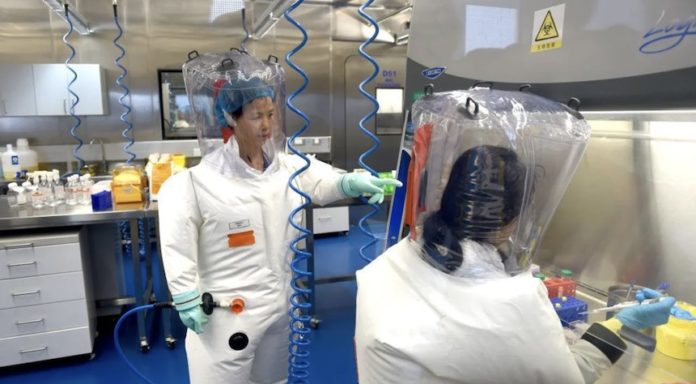Francis Collins, until December 2021, was the director of the National Institutes of Health. Since then, federal funds have been provided by the EcoHealth Alliance, a British zoologist, to support its operations.
EcoHealth, in turn, has used grant money for dangerous gain-of-function research on coronaviruses at the Wuhan Institute of Virology. This is possibly the epicenter of the pandemic which has claimed tens of thousands of lives around the world.
A damning report by the HHS Office of Inspection General has revealed that the NIH knew of potential risks associated with research in China funded with federal grant money.
It “didn’t effectively monitor or take timely actions to address EcoHealth’s compliance with certain requirements despite this knowledge.”
According to The Daily Mail, the National Institute of Allergy and Infectious Diseases (NIAH) was responsible for this monitoring. It was supervised by Anthony Fauci in 2022.
Further, the OIG report stated that although procedures were put in place to monitor dangerous work and ensure compliance, they failed to meet requirements.
Both EcoHealth and the NIH are reported to have ignored federal requirements directly or by extension of sub-awards.
EHA was asked by the NIH on Nov. 5, 2021, to provide scientific documentation pertaining to experiments that were carried out in Wuhan. OIG stated that they did not have any evidence that EHA had obtained such information. EHA officials confirmed that Wuhan’s lab was not responsive to the agency’s request for data.
According to reports, the NIH failed to refer the potentially dangerous research to the U.S. Department of Health and Human Services to receive an outside review regarding enhanced pandemic potential pathogens. This was because the NIH determined that the research didn’t involve and wasn’t likely to cause a pandemic.
The OIG report also noted other flaws, such as the improper termination of a grant by the NIH and the improper use of grant money by EcoHealth, which resulted in $89,171 in unallowable expenses.
These shortcomings “limited NIH’s and EcoHealth’s ability to effectively track Federal grant awards and sub-awards to understand and identify the nature of research, to take corrective actions, and to make sure that they are being used appropriately.”
The report concluded that NIH could have taken more timely corrective steps to reduce the inherent risks associated with this type of research if it had better oversight.
Rutgers University biologist Dr. Richard Ebright told the Daily Mail that these conclusions show major failures in past NIH supervision of high-risk research for enhanced potential pandemic pathogens. This highlights the need to both hold NIH accountable for past failures and strengthen NIH oversight in the future.
In response to the report, the EHA released a statement stating that the NIH was under “significant political pressure… retroactively alleged our work wasn’t in compliance” and that the non-profit is “fully committed responsible research with enhanced potential pandemic disease genes and follows all U.S. policies and rules about such research.”
Republican lawmakers repeatedly cited EHA’s “long history of reporting failures, collaboration with the Wuhan Institute of Virology(WIV)”, noting that the WIV is a Chinese Communist Party laboratory and likely source of the COVID-19 pandemic.
Daszak had previously called NIH’s requests for U.S. federal officials to inspect the WIV “heinous” and dismissed suggestions that the virus may have leaked from WIV — to whom his organization had directed a substantial amount of taxpayer money — as “conspiracy theories.”
EcoHealth, despite questions regarding its compliance and other deficiencies, received funding from the Department of Defense last month to the tune of several million dollars.
“Despite [EcoHealth] possibly causing the COVID-19 Pandemic and despite clearly having repeatedly and gravely broken terms of a US government grant, currently has twelve active US-government contracts and grants, totaling over $34 million,” Dr. Ebright stated about EHA’s continued funding at taxpayers’ expense.




